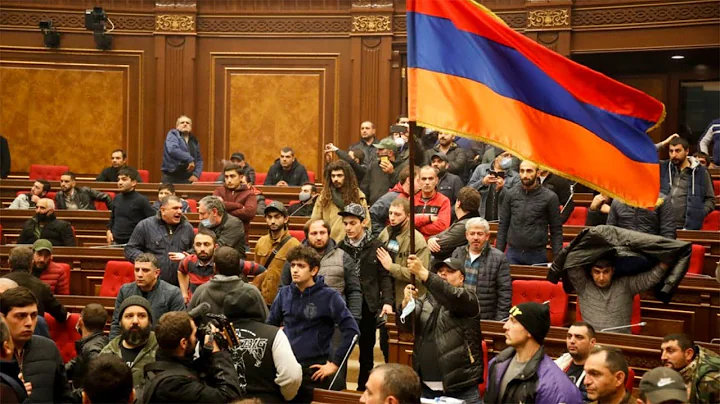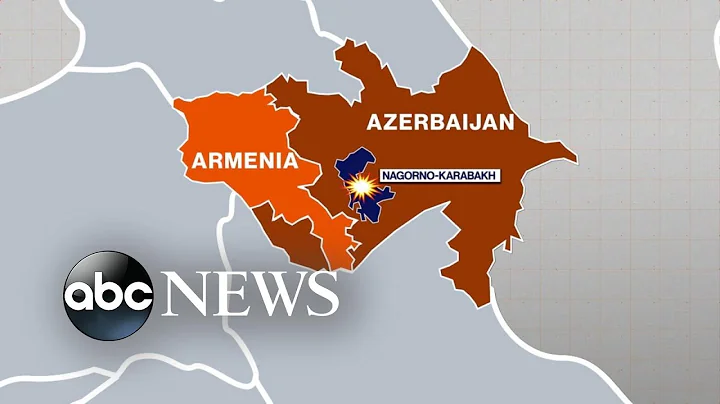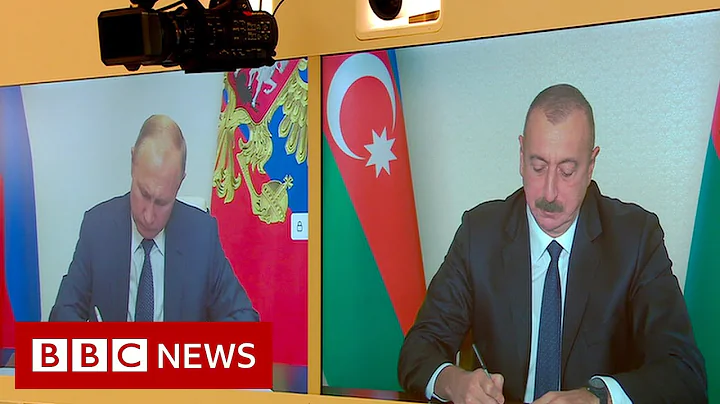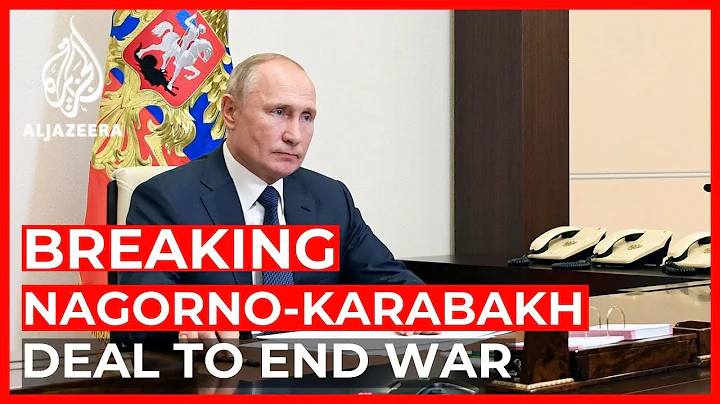After Yeltsin announced his withdrawal from the Communist Party of the Soviet Union in 1990, he did not lose power and instead became the leader of the Russian Parliament. Not only did he have a generous salary and a spacious office, Yeltsin even had a luxury car and a dedicated driver to drive for him.
At this time, a chaotic "democratic system" had emerged in the Soviet Union, and the system that caused this chaos was Gorbachev's "reforms." He started to make changes from the top of the Soviet Union, but he did not win the support of the people. People of all ethnic groups in the Soviet Union could express their ideas freely.

But Gorbachev's reforms also caused a problem , which was the ethnic conflict in the Soviet Union. In 1988, in the Nagorno-Karabakh area where Armenians inhabited Azerbaijan , Azerbaijanis and Armenians clashed. At that time, more than 2 million people from the participating countries participated in demonstrations. The most violent areas were the Baltic countries and the Caucasus countries. Gorbachev had to send troops to quell the riots.
The Baltic countries have been fighting for independence. After the three countries were occupied by the Soviet Union in 1940, they were merged into the Soviet Union after World War II. However, the centrifugal force of the Baltic countries is very strong.
On August 23, 1989, independent organizations in the Baltic countries launched a demonstration. At that time, more than 2 million people participated in the demonstration. The demonstrators held hands and formed a human chain of more than 600 kilometers, passing through the three countries of Ai, La, and Li.
The three Baltic countries were included in the territory of the Soviet Union when the Soviet Union and Germany signed the "Soviet-German Non-Aggression Pact". The United States has never recognized it, so the three Baltic countries have always wanted independence.
In 1989, the Lithuanian Communist Party finally declared independence from the Soviet Communist Party. At this time, the authority of the Soviet Communist Party was weakened. The Soviet Union, which was powerful at that time, is now losing its authority little by little in the hands of Gorbachev.
In March 1990, the Lithuanian Parliament declared independence from the Soviet Union. By the summer of that year, many Soviet Union countries had declared their sovereignty, and even Russia had also declared its sovereignty. gained sovereignty.
At this time, Gorbachev had not yet realized the danger, but the increasing autonomy of the participating countries was causing the Soviet Central Committee to lose control.
What is puzzling is that after the independence of the three Baltic countries, Russian liberals announced an alliance with the three Baltic countries. However, Russian sovereignty has not yet become completely independent and is still entangled with the Soviet Union.
Let’s talk about it here. Although the Soviet Union had 15 member republics , it was established with Russia as the core. Russia is different from other union republics. Russia itself does not have independent administrative departments, only various departments of the Soviet government. However, other participating countries have such a system. This is also a characteristic of the Soviet system.
In order to enhance Russia's sovereignty, some Russian democrats decided to be as independent as the Baltics.

In early 1990, in order to compete for a seat in the Russian Parliament, Yeltsin proposed the idea of "enhancing Russia's sovereignty." At that time, all Yeltsin wanted was political and economic power.
Yeltsin's idea quickly gained support from more Russians. He dared to speak and act, and was not afraid of Gorbachev. In particular, the ideas he proposed were all step-by-step and very in line with the people's ideas. This is why Yeltsin enjoys widespread support in Russia.
Before Gorbachev reformed , no one was aware of the subject of the Russian Federation. As mentioned above, there is no Academy of Sciences in Russia. It is a department set up by the Soviet Union in Moscow.
Just as Yeltsin told reporters in 1990: " I consider myself a Soviet, not a Russian." The purpose of Yeltsin's words was to highlight Russia and gain more power for Russia.
At that time, some people even established Russian Communist Party mainly by referring to other member countries.
Faced with endless ideas and demands within Russia, for a while, the top Soviet officials didn't know what to do. Gorbachev himself was an indecisive person. On May 3, 1990, at the Politburo meeting, Gorbachev mentioned the issue of the Russian Communist Party. He believed that if there was a Russian Communist Party, there would be pressure on the communist parties of other participating countries.
At this meeting, Gorbachev also reprimanded a senior official for revealing Gorbachev's opposition to the establishment of the Russian Communist Party.

Gorbachev believed at the meeting that if he opposed the establishment of the Russian Communist Party, Russians would be dissatisfied and it would cause conflicts among various ethnic groups.
Deep down in his heart, Gorbachev did not want the Russian Communist Party to be established, believing that it would further intensify Russia's awareness of independence. However, in other participating countries, nationalism will prevail. If the Russian Communist Party is established, those conservatives who oppose reforms will continue to use the platform of the Russian Communist Party to oppose Gorges.
Ryzhkov, then Prime Minister of the Soviet Union, reminded Gorbachev: If he opposed the establishment of the Russian Communist Party, the top Soviet officials in Russia might be replaced by Yeltsin.

But in the end Gorbachev agreed to establish the Russian Communist Party. In June 1990, the Soviet Union held a meeting and adopted a resolution to establish the Russian Communist Party. Sure enough, the post-independence Russian Communist Party was really an internal platform for opposing Gorbachev’s reforms.
Gorbachev did not expect that by allowing the Russian Communist Party to become independent, his opponents would add more powerful opposition forces besides Yeltsin.
Regarding the issue of Russian sovereignty and independence, as early as 1989, the Politburo met to discuss the threat of this issue. At that time, the Soviet theorist Medvedev objected to applying the sovereignty model given to other member countries to Russia. Medvedev believed that the Soviet Union would become a federal state if it imitated other countries. Because the Russian Socialist Federative Soviet Republic is the core of the alliance, and now that the core has changed, everything else must change.
Gorbachev agreed with Medvedev's suggestion that he wanted to give Russia other autonomy, but would not grant Russia sovereignty, and he was also worried that the alliance would lose its core.
In November 1989, at a Politburo meeting, Ryzhkov reminded Gorbachev again: "Don't worry about the Baltic countries. What we need to worry about is Russia and Ukraine. . If they want sovereignty, they will It will lead to the disintegration of our country. With that, we need to create another government, another national leadership, so that the Soviet Union will not exist."
When Ryzhkov said these words, it was still more than two years before the collapse of the Soviet Union. No one expected that his reminder would come true.

Subsequently, Yeltsin was elected as the Speaker of the Russian Parliament in the Russian parliamentary election. Soon he proposed that Russia should have sovereignty and won the support of 2/3 of the representatives. Yeltsin began to decentralize power with the Soviet Communist Party. In the summer of 1990, the Russian Parliament led by Yeltsin directly declared Russia's sovereignty and gave Russian laws the authority to take precedence over Soviet laws.
In the autumn of 1990, Ryzhkov reported to the Politburo that all his orders could not be implemented. Afterwards, Gorbachev wanted to reorganize the cabinet and dismissed Rykov from his post.
But at this time, Gorbachev could no longer control Yeltsin. He thought that preventing Yeltsin from being elected and preventing Russia from declaring sovereignty would prevent everything. He was wrong. His reforms could not prevent the disintegration of the Soviet Union's political and economic territory, and the authority of the Soviet Communist Party had been seriously threatened. The
picture comes from the Internet, and the copyright belongs to the original author.





















